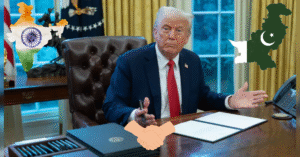The issue of the Uniform Civil Code (UCC) has long been a subject of debate in India. While it is being projected as a step towards equality and modernity, the underlying risks it poses to India’s cultural diversity, social fabric, and traditions cannot be ignored. The implementation of UCC could have serious repercussions not only for minority communities but also for the majority population.
India’s identity lies in its diversity, where every community follows its own personal laws based on religious and cultural traditions. According to the 2011 Census, India comprises 79.8% Hindus, 14.2% Muslims, 2.3% Christians, 1.7% Sikhs, and other communities. In such a pluralistic society, the imposition of UCC would violate the constitutional right to religious freedom (Article 25). For the Muslim community, it would mean abandoning Sharia-based personal laws, threatening their cultural identity and religious autonomy.
However, the issue is not limited to the Muslim community alone. Hindu traditions, too, would face significant disruptions under UCC. The Hindu Undivided Family (HUF) system, which provides tax benefits and governs the division of joint family property, could be jeopardized. In the financial year 2020-21, tax benefits worth over ₹6,000 crore were availed under the HUF system. Additionally, temple customs and regional marriage practices could also be adversely affected.
Tribal communities and the unique traditions of northeastern states would also bear the brunt of UCC. India is home to over 10.4 crore tribal people (8.6% of the total population), who follow their own customary laws. Imposing UCC on these communities could lead to widespread dissent and even fuel separatist sentiments.
Despite claims of empowering women, UCC could prove detrimental to both Muslim and Hindu women. Provisions like mehr and inheritance laws under Islamic practices provide financial security to Muslim women, while regional laws offer similar protections to Hindu women. Enforcing uniformity would disregard these cultural and social contexts, leaving women more vulnerable.
Moreover, the implementation of UCC would place an enormous burden on India’s judicial and administrative systems. As of 2023, over 4.5 crore cases are already pending in Indian courts. The introduction of UCC would lead to thousands of new legal disputes, further straining an already overburdened judiciary.
UCC is not merely a legal reform but is often used as a ability for political polarization. True progress can only be achieved by fostering reforms within communities while respecting cultural autonomy. India’s diversity is its greatest strength, and any attempt to undermine it must be resisted.
Dr. Samra Sultana
Member, All India Muslim Personal Law Board








